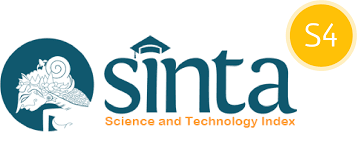Peran Rasa Syukur dalam Pengendalian Kecemasan dan Stress pada Mahasiswa
DOI:
https://doi.org/10.18196/jasika.v4i1.85Keywords:
Rasa Syukur, Mahasiswa, stres, Gratitude, AnxietyAbstract
Anxiety and stress can have a psychological effect on the student learning process. Students need to reduce anxiety and stress with positive emotions such as gratitude. The purpose of this research is to determine the effect of gratitude on anxiety and stress in students. Quantitative methods were used in this research by taking samples through r simple random sampling. The sample in this study was students in the city of Samarinda, with data collected using the gratitude questionnaire (GQ-6) and Depression, Anxiety and stress Scale (DASS-21). This research uses multiple linear regression statistical analysis. The results of this study found that there was a significant influence regarding gratitude on anxiety and stress among students in the city of Samarinda. With a high sense of gratitude, students can reduce anxiety and stress so that students' lives become calmer, more prosperous and happier
References
Algoe, Sara B., Barbara L. Fredrickson, and Shelly L. Gable. “The Social Functions of the Emotion of Gratitude via Expression.” Emotion 13, no. 4 (2013): 605–9. https://doi.org/10.1037/a0032701.
Andeslan, Salim, and Qurotul Uyun. “Hubungan Antara Rasa Syukur Terhadap Tingkat Depresi, Cemas, Stres Pada Mahasiswa Tingkat Akhir Di Masa Peralihan Pandemi Covid-19.” Cakrawala Repositori IMWI 6, no. 1 (2023): 681–90. https://doi.org/10.52851/cakrawala.v6i1.259.
Daulay, Nurussakinah, Muhammad Shaleh Assingkily, and Abdul Kholik Munthe. “The Relationship between Gratitude and Well-Being: The Moderating Effect of Religiosity on University Freshmen during the COVID-19 Pandemic.” Psikohumaniora 7, no. 1 (2022): 51–64. https://doi.org/10.21580/pjpp.v7i1.11055.
Dewi, Lharasati, Fatwa Tentama, and Ahmad Muhammad Diponegoro. “Subjective Well-Being: Mental Health Study among Student in the Islamic Boarding School.” International Journal of Public Health Science 10, no. 1 (2021): 146–58. https://doi.org/10.11591/ijphs.v10i1.20610.
Dusen, John P. Van, Mojisola F. Tiamiyu, Todd B. Kashdan, and Jon D. Elhai. “Gratitude, Depression and PTSD: Assessment of Structural Relationships.” Psychiatry Research, 2015. https://doi.org/10.1016/j.psychres.2015.11.036.
Emmons, Robert A., and Robin Stern. “Gratitude as a Psychotherapeutic Intervention.” Journal of Clinical Psychology 69, no. 8 (2013): 846–55. https://doi.org/10.1002/jclp.22020.
Erwin Akib, Muhammad Erwinto Imran, Saiyidah Mahtari, Muhammad Rifqi Mahmud, Anggy Giri Prawiyogy, Irfan Supriatna, and MT. Hartono Ikhsan. “Study on Implementation of Integrated Curriculum in Indonesia.” IJORER : International Journal of Recent Educational Research 1, no. 1 (2020): 39–57. https://doi.org/10.46245/ijorer.v1i1.24.
Fathoni, Aryo Bima, and Ratih Arruum Listiyandini. “Kebersyukuran, Kesepian, Dan Distres Psikologis Pada Mahasiswa Di Masa Pandemi Covid-19.” Journal of Psychological Science and Profession 5, no. 1 (2021): 11–19. https://doi.org/10.24198/jpsp.v5i1.29212.
Hamka, H., N. Ni’matuzahroh, T. Astuti, M.-W. Suen, and F.-A. Shieh. “Psychological Well-Being of People Living near Landfills: Preliminary Case Study in Indonesia.” International Journal of Human Rights in Healthcare 13, no. 4 (2020). https://doi.org/10.1108/IJHRH-09-2019-0076.
Hamka, Hamka, Ni’matuzahroh Ni’matuzahroh, Tri Astuti, Mein Woei Suen, and Fu An Shieh. “Psychological Well-Being of People Living near Landfills: Preliminary Case Study in Indonesia.” International Journal of Human Rights in Healthcare 13, no. 4 (2020): 365–79. https://doi.org/10.1108/IJHRH-09-2019-0076.
Hamka, Hamka, and Muhammad Yusuf. “Spiritualitas, Kecemasan, Dan Stres Selama Pandemi COVID-19.” Jurnal Psikologi Islam Dan Budaya 6, no. 1 (2023): 47–54. https://doi.org/10.15575/jpib.v6i1.14145.
Hamka, Mein Woei Suen, Yoga Achmad Ramadhan, Muhammad Yusuf, and Jui Hsing Wang. “Spiritual Well-Being, Depression, Anxiety, and Stress in Indonesian Muslim Communities During COVID-19.” Psychology Research and Behavior Management 15 (2022): 3013–25. https://doi.org/10.2147/PRBM.S381926.
Henry, Hani M. “Spiritual Energy of Islamic Prayers as a Catalyst for Psychotherapy.” Journal of Religion and Health 54, no. 2 (2015): 387–98. https://doi.org/10.1007/s10943-013-9780-4.
Howells, Kerry. “An Exploration of the Role of Gratitude in Enhancing Teacher-Student Relationships.” Teaching and Teacher Education 42 (2014): 58–67. https://doi.org/10.1016/j.tate.2014.04.004.
Hyland, Michael E., Ben Whalley, and Adam W.A. Geraghty. “Dispositional Predictors of Placebo Responding: A Motivational Interpretation of Flower Essence and Gratitude Therapy.” Journal of Psychosomatic Research 62, no. 3 (2007): 331–40. https://doi.org/10.1016/j.jpsychores.2006.10.006.
Isgandarova, Nazila. “Muraqaba as a Mindfulness-Based Therapy in Islamic Psychotherapy.” Journal of Religion and Health 58, no. 4 (2019): 1146–60. https://doi.org/10.1007/s10943-018-0695-y.
Jans-Beken, Lilian, Johan Lataster, Denise Peels, Lilian Lechner, and Nele Jacobs. “Gratitude, Psychopathology and Subjective Well-Being: Results from a 7.5-Month Prospective General Population Study.” Journal of Happiness Studies 19, no. 6 (2018): 1673–89. https://doi.org/10.1007/s10902-017-9893-7.
Jin, Yinxing, Jean Marc Dewaele, and Peter D. MacIntyre. “Reducing Anxiety in the Foreign Language Classroom: A Positive Psychology Approach.” System 101, no. June (2021): 102604. https://doi.org/10.1016/j.system.2021.102604.
Koay, Siew Hoong, Ai Tsin Ng, Shi Ki Tham, and Chee Seng Tan. “Gratitude Intervention on Instagram: An Experimental Study.” Psychological Studies 65, no. 2 (2020): 168–73. https://doi.org/10.1007/s12646-019-00547-6.
Linley, P. Alex, and Stephen Joseph. Positive Psychology in Practice. Positive Psychology in Practice, 2012. https://doi.org/10.1002/9780470939338.
Lomas, Tara, Jeffrey J. Froh, Robert A. Emmons, Anjali Mishra, and Giacomo Bono. “Established Areas of Intervention A Review and Future Agenda.” The Wiley Blackwell Handbook of Positive Psychological Interventions, 2014, 1–19.
McCullough, Michael E., Robert A. Emmons, Shelley D. Kilpatrick, and David B. Larson. “Is Gratitude a Moral Affect?” Psychological Bulletin 127, no. 2 (2001): 249–66. https://doi.org/10.1037/0033-2909.127.2.249.
Petrocchi, Nicola, and Alessandro Couyoumdjian. “The Impact of Gratitude on Depression and Anxiety: The Mediating Role of Criticizing, Attacking, and Reassuring the Self.” Self and Identity 15, no. 2 (2016): 191–205. https://doi.org/10.1080/15298868.2015.1095794.
Portocarrero, Florencio F., Katerina Gonzalez, and Michael Ekema-Agbaw. “A Meta-Analytic Review of the Relationship between Dispositional Gratitude and Well-Being.” Personality and Individual Differences 164, no. November 2019 (2020): 110101. https://doi.org/10.1016/j.paid.2020.110101.
Rahman, Syahnur, Lira Fessia Damaianti, Ariga Bahrodin, Machmudah, Suharni, Nafiah, Hetti Rahmawati, and Endang Prastuti. “A Literature Review of Gratitude and Subjective Well-Being in School.” TEST: Engineering & Management 83, no. 1 (2020): 24428–34.
Renshaw, Tyler L. “Psychometrics of the Revised College Student Subjective Wellbeing Questionnaire.” Canadian Journal of School Psychology 33, no. 2 (2018): 136–49. https://doi.org/10.1177/0829573516678704.
Renshaw, Tyler L., and Dana K. Rock. “Effects of a Brief Grateful Thinking Intervention on College Students’ Mental Health.” Mental Health and Prevention 9, no. July 2017 (2018): 19–24. https://doi.org/10.1016/j.mhp.2017.11.003.
Russell, D., D. Higgins, and A. Posso. “Preventing Child Sexual Abuse: A Systematic Review of Interventions and Their Efficacy in Developing Countries.” Child Abuse and Neglect 102, no. January (2020): 104395. https://doi.org/10.1016/j.chiabu.2020.104395.
Safaria, Triantoro. “Forgiveness, Gratitude, and Happiness among College Students.” International Journal of Public Health Science (IJPHS) 3, no. 4 (2014): 241–45. https://doi.org/10.11591/ijphs.v3i4.6947.
Tiggemann, Marika, and Kristy Hage. “Religion and Spirituality: Pathways to Positive Body Image.” Body Image 28 (2019): 135–41. https://doi.org/10.1016/j.bodyim.2019.01.004.
Uyuni, Badrah, and Mohammad Adnan. “The Challenge of Islamic Education in 21st Century.” SALAM: Jurnal Sosial Dan Budaya Syar-I 7, no. 11 (2020): 1101–20. https://doi.org/10.15408/sjsbs.v7i12.18291.
Wood, Alex M., Jeffrey J. Froh, and Adam W.A. Geraghty. “Gratitude and Well-Being: A Review and Theoretical Integration.” Clinical Psychology Review 30, no. 7 (2010): 890–905. https://doi.org/10.1016/j.cpr.2010.03.005.
Wu, Qinglu, Peilian Chi, Xiuyun Lin, and Hongfei Du. “Child Maltreatment and Adult Depressive Symptoms: Roles of Self-Compassion and Gratitude.” Child Abuse and Neglect 80, no. March (2018): 62–69. https://doi.org/10.1016/j.chiabu.2018.03.013.
Downloads
Published
How to Cite
Issue
Section
License
Copyright (c) 2024 Aniq Hudiyah Bil Haq, Hamka, Alfiza Fakhria Haq, Muslimin Nulipata, Aulia Ramdani , Desita Dyah Damayanti, Mein-Woei Suen

This work is licensed under a Creative Commons Attribution-NonCommercial-ShareAlike 4.0 International License.




